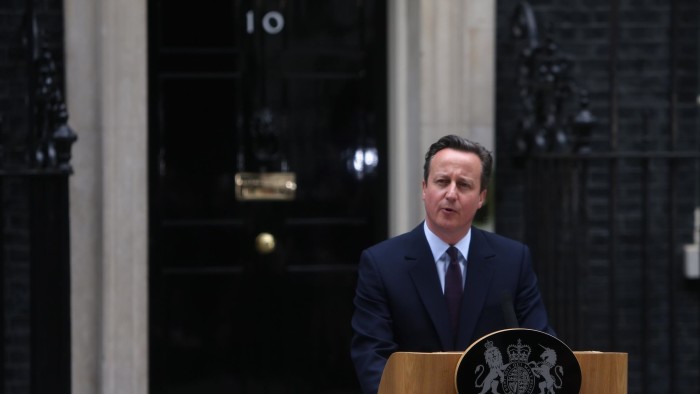Cameron will mourn the coalition

Roula Khalaf, Editor of the FT, selects her favourite stories in this weekly newsletter.
My successor, Sir Jeremy Heywood, has a much less difficult job today than many expected: it will not be a coalition of uncertain composition but a vanilla one-party majority government. Yet governing with a small majority presents its own challenges. My prediction is that there will be many times during this parliament when Mr Cameron looks back wistfully on the coalition days when he commanded a large majority in the House.
One need only recall the government formed by Sir John Major after he returned to Number 10 with an uncomfortably slender margin in 1992. Like Sir John, Mr Cameron will have to deal with very difficult EU negotiations. The prime minister has set himself the challenge of winning an in/out referendum on EU membership. He has to pass legislation giving sweeping new powers to the Scottish government, which will create tension between some in his party and the mass of newly elected Scottish National party MPs. On top of that, he will face serious battles over his plans to reduce welfare spending. In all these cases he will require complete support from his party if he is to win key votes.
The Treasury will be nervous that small parties such as the Democratic Unionist party will put a high price tag on their support — £1bn has been mooted. And individual MPs will have the power to demand concessions, which are generally expensive, in return for loyalty.
Many prime ministers begin their second term with increased majorities and use their renewed mandate to pursue radical reforms. We will now get to see what a Conservative government unfettered by the Liberal Democrats can achieve. No doubt there will shortly be a “Conservative” Budget, to emphasise precisely how this government will differ from the coalition. But every vote will be a struggle, and some may be lost. With a small majority, as with a minority government, there is a lot to be said for carefully considering non-legislative means of securing your objectives. “Nudging” is likely to remain an important part of the prime minister’s armoury.
At the end of this parliament, Mr Cameron might be able to look back on a successful renegotiation of our relationship with the EU — cemented by a referendum victory, a return to balance in the public finances and a revised settlement between Scotland and the rest of the UK that keeps the union intact. That would be a great legacy.
The writer is a former cabinet secretary and current chairman of Frontier Economics
Comments